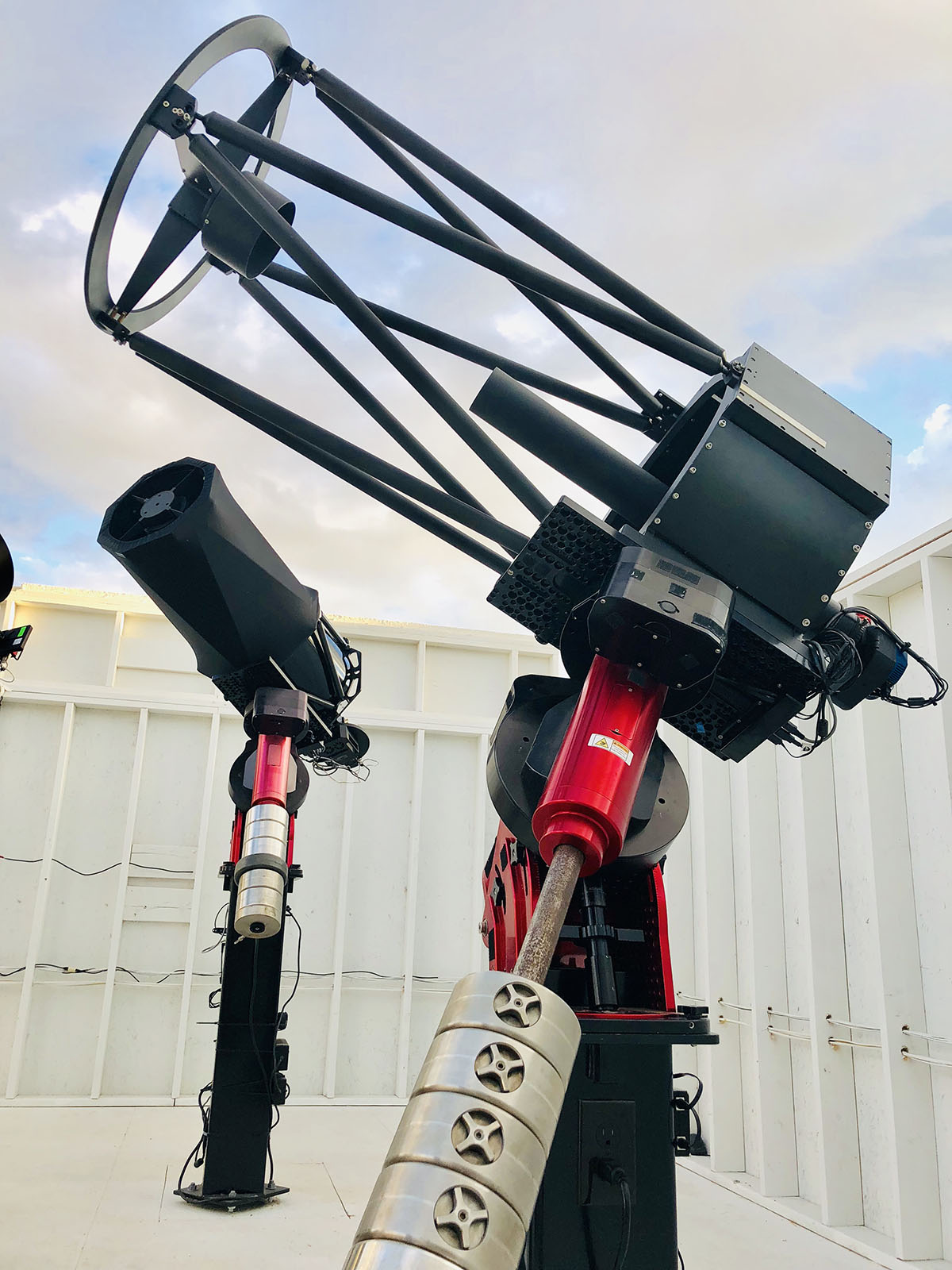BADSCAC Telescope
The BADSCAC (Boyce-Astro, Dark Skies, Citizen Astronomy Center) telescope is located at the Dark Sky Observatory near the McDonald Observatory in West Texas.
As part of an informal collaboration, the University of North Texas has completed the successful restoration, update and installation of a half- meter CDK (Corrected Dall-Kirkhand) telescope to be used for student photometric and astrometric research.
“A CDK telescope utilizes two mirrors, special lenses and a charge-coupled device (like those found in digital cameras) to produce extremely high-quality images,” said Ron Diiulio, astronomy lab director at UNT’s College of Science. “This telescope will allow us to see a multitude of cosmic wonders such as planets outside of our solar system and variable stars.”
The BADSCAC (Boyce-Astro, Dark Skies, Citizen Astronomy Center) telescope is located at the Dark Sky Observatory near the McDonald Observatory in West Texas. The choice of the Dark Sky Observatory was strongly supported by the collaboration members due to its very good seeing (1 arcsecond), as well as its location under one of the darkest skies in the northern hemisphere.
Scientists, researchers and students will be able to access images and control the telescope remotely from anywhere an internet connection is available. The collaboration plans to add a spectrograph to the system, making it one of the most high-resolution spectrographic telescopes readily available for small-telescope observations of brighter celestial objects.The addition of the spectrograph will also allow users to measure the temperatures, compositions and directions of stars as they move through the universe.
The half-meter telescope was custom designed and constructed by Hubble Optics. Tong Liu, the president of Hubble Optics, personally oversaw the construction, and installation of BADSCAC. This company has delivered custom-designed telescopes to more than 44 countries.
In addition to UNT, the research astronomy collaboration includes the University of Dallas and The Boyce Research Initiatives and Education Foundation. BRIEF is a San Diego-based nonprofit foundation whose mission is to provide scientific and technical research opportunities to enhance students’ educational experience and to introduce them to the scientific and technical communities.
The collaboration has plans to develop sustainable revenue sources from other universities, as well as advanced amateurs wishing to use its facilities. Parties interested in accessing BADSCAC can email requests to Diiulio at ronald.diiulio@unt.eduor Pat Boyce at info@boyce-astro.org.





